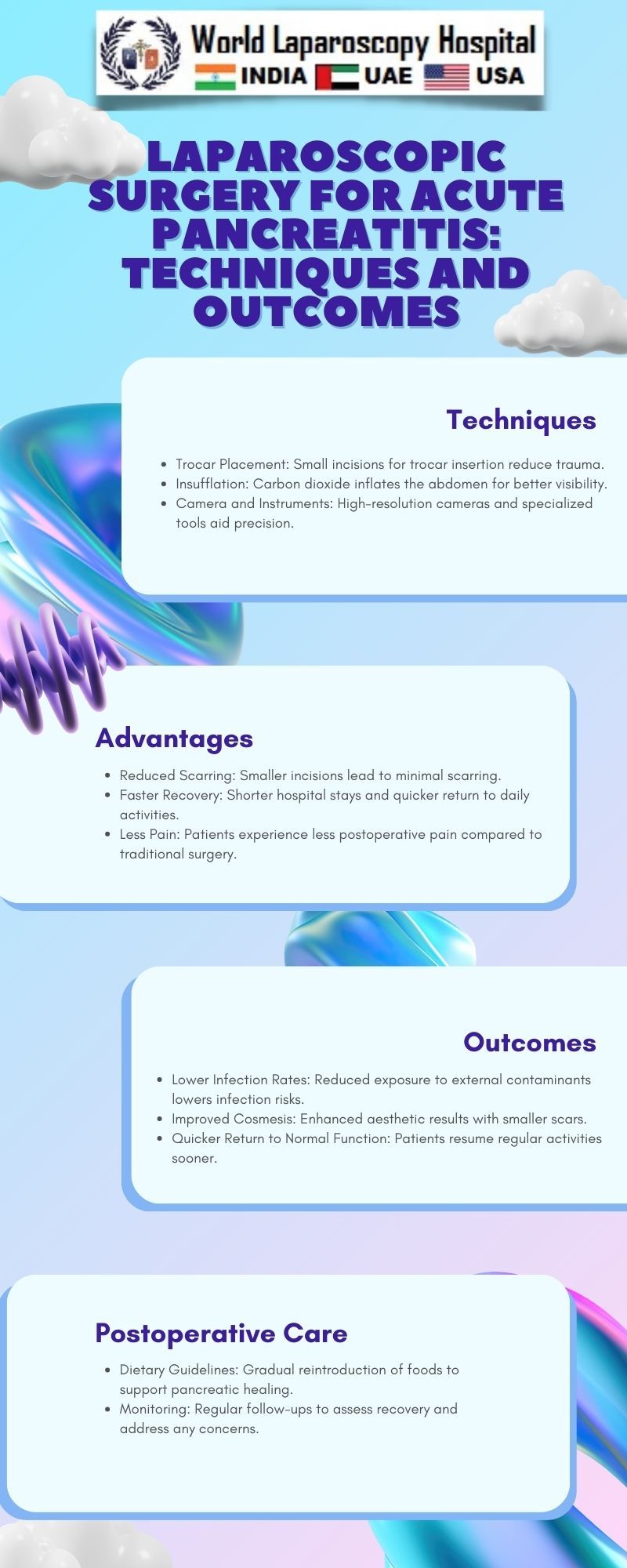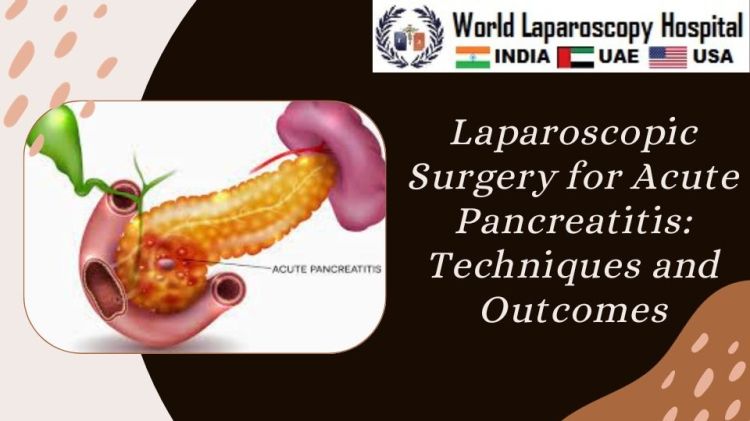Laparoscopic Surgery for Acute Pancreatitis: Techniques and Outcomes
Introduction:
Acute pancreatitis is a serious inflammatory condition of the pancreas that can lead to severe complications if not managed promptly and effectively. While many cases of acute pancreatitis can be treated conservatively, there are instances where surgical intervention becomes necessary. In recent years, laparoscopic surgery has emerged as a promising approach for the management of acute pancreatitis, offering several advantages over traditional open surgery. This article explores the techniques employed in laparoscopic surgery for acute pancreatitis and delves into the outcomes associated with this minimally invasive approach.

Understanding Acute Pancreatitis:
Definition and Causes:
- Definition of acute pancreatitis.
- Common causes, including gallstones, alcohol consumption, and metabolic disorders.
- The inflammatory cascade and its impact on pancreatic tissue.
Indications for Surgical Intervention:
- Severity assessment: mild, moderate, and severe cases.
- Criteria for surgical intervention.
- Timing of surgery in acute pancreatitis.
Laparoscopic Surgery: A Minimally Invasive Approach:
Evolution and Development:
- Historical perspective of laparoscopic surgery.
- Advances in laparoscopic techniques for pancreatic surgery.
- Laparoscopic cholecystectomy as a precursor to laparoscopic pancreatic surgery.
Techniques in Laparoscopic Pancreatic Surgery:
- Patient positioning and trocar placement.
- Creation of pneumoperitoneum and insertion of the laparoscope.
- Mobilization and exposure of the pancreas.
- Specimen retrieval and closure of incisions.
Advantages of Laparoscopic Surgery in Acute Pancreatitis:
Reduced Postoperative Pain:
- Comparison with open surgery in terms of pain perception.
- Improved patient satisfaction and recovery.
Minimized Blood Loss:
- Hemostasis in laparoscopic pancreatic surgery.
- Comparison of blood loss with open surgery.
Shorter Hospital Stay:
- Enhanced recovery after laparoscopic surgery.
- Economic implications of reduced hospitalization.
Lower Rates of Complications:
- Surgical site infections and wound complications.
- Comparative analysis of complications in laparoscopic vs. open surgery.
Outcomes and Complications:
Short-term Outcomes:
- Postoperative pain management.
- Time to oral intake and return to normal activities.
- Early complications in the immediate postoperative period.
Long-term Outcomes:
- Impact on pancreatic function.
- Quality of life after laparoscopic pancreatic surgery.
Complications and Their Management:
- Pancreatic fistula and its prevention.
- Management of postoperative bleeding.
- Biliary complications and their resolution.
Patient Selection and Considerations:
Criteria for Laparoscopic Approach:
- Patient characteristics favoring laparoscopic surgery.
- Preoperative assessment and risk stratification.
Contraindications and Challenges:
- Situations where laparoscopic surgery may not be feasible.
- Management of unexpected intraoperative challenges.
Future Directions and Innovations:
Technological Advancements:
- Robotic-assisted laparoscopic surgery in acute pancreatitis.
- Integration of artificial intelligence in surgical decision-making.
Research and Clinical Trials:
- Ongoing studies exploring the efficacy of laparoscopic techniques.
- Innovations in laparoscopic instruments and equipment.
Conclusion:
Laparoscopic surgery for acute pancreatitis represents a significant advancement in the field of pancreatic surgery, offering patients a less invasive alternative with several potential benefits. As technology continues to evolve and more research is conducted, the landscape of laparoscopic pancreatic surgery is likely to undergo further enhancements, shaping the future of acute pancreatitis management. The comprehensive understanding of techniques, outcomes, and considerations provided in this article aims to contribute to the knowledge base surrounding laparoscopic surgery for acute pancreatitis.
